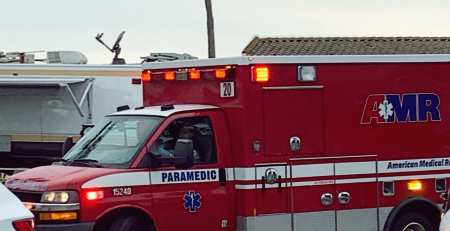Ten Critical Things About Your Relationship with the Work Comp Case Manager
What should an injured worker never say to a nurse case manager?

Never get too friendly with the nurse case manager. Especially not with the ones you believe are your friend.
Here are several things an injured worker should never say to a nurse case manager:
- Exaggerate Symptoms: Injured workers should avoid exaggerating or embellishing their symptoms when speaking to a nurse case manager. Providing accurate and honest information about their condition is essential for proper medical assessment and treatment. When discussing your symptoms, stick with the facts. Be brief, but complete and stick to the facts. No one admires histrionics.
- Downplay Symptoms: Conversely, downplaying or minimizing symptoms can also be problematic. It is important to communicate the severity of your symptoms accurately to ensure that you receive appropriate medical care and support. Downplaying symptoms is as bad or worse than exaggerating them. Be accurate. Be truthful. Be complete.
- Blame Others for the Injury: Assigning blame or fault to others for the workplace injury may complicate the workers’ compensation process and potentially undermine your claim. Focus on providing factual information about the injury and avoid making accusations or assigning blame. If you blame the doctor the NCM will tell them what you said. The next time the NCM meets with your doctor or the doctor’s staff, they will say what they remember you saying, which may or may not be at all accurate.
- Discuss Legal Strategies or Opinions: Nurse case managers are not legal representatives, and discussions about legal strategies or opinions should be reserved for conversations with your attorney. Avoid discussing legal matters with the nurse case manager to prevent potential misunderstandings or conflicts of interest. OMG, never discuss with the NCM what your lawyer said to you. Even if the NCM is offering what you believe is legal advice, do not take the bait and discuss your legal case. You can discuss appointments, problems with logistics, pain, symptoms, signs and medical issues; but never ever legal strategy.
- Provide Inconsistent Information: Consistency in the information provided to the nurse case manager is essential. Inconsistencies or discrepancies in your statements may raise doubts about the credibility of your injury claim. A well-trained NCM is constantly listening and looking for inconsistencies in what you say versus what you said during an earlier visit. Which is why your communications with the NCM should be brief, factual, and not last longer than a few minutes.
- Discuss Personal or Confidential Information: Avoid discussing personal or confidential information unrelated to your workplace injury with the nurse case manager. Stick to discussing medical and treatment-related matters to maintain professionalism and privacy. If you say your family is going to Disneyland, it will find its way into the NCM’s report and will reflect negatively on your case. There is no meeting for a coffee with the NCM. That is because the NCM is not your friend and does not represent you. A well-trained NCM will ask about how your personal life is going? Do you have any problems or concerns? No way. Keep your mouth shut and your ears open. Make notes after each visit with the NCM so that if the NCM lies about what you said, you are able to review your notes to see what you actually did say.
- Agree to Activities Contradicting Medical Advice: If the nurse case manager suggests activities or accommodations that contradict your doctor’s recommendations, it is important to advocate for yourself and express any concerns. Follow your doctor’s advice regarding treatment and activity limitations. The NCM is not the doctor and is not a medical professional involved in treating you. Their job is to advocate for the employer and its insurance company. You can never trust that advice they give is in your best interest. Stay alert and stay weary.
- Make Promises Regarding Returning to Work: Avoid making promises or commitments regarding your ability to return to work without consulting your healthcare provider and talking with your lawyer. Your doctor’s recommendations and medical evaluation should guide decisions about returning to work. Your lawyer’s advice is critical to avoiding traps the NCM sets up. NCM’s get hired by getting you back to work early. The earlier the better for them, not necessarily for you. The NCM gets points and rehired on the next case, because they are perceived by the insurance company and company as helping them, not helping you.
- Complain About Employer or Insurance Company: While it is natural to feel frustrated or dissatisfied with aspects of the workers’ compensation process, expressing complaints or grievances to the nurse case manager may not be productive. Focus on constructive communication and problem-solving to address concerns. Never forget who the NCM works for, who hires them and who pays their salary. And it is not you.
- Agree to Recorded Conversations Without First Talking to Your Lawyer: If the nurse case manager requests to record conversations or statements, ensure that you fully understand the purpose and implications of recording; and then say ‘No’. Tell the NCM your lawyer first must consent. Even in the beginning consider consulting with your attorney before agreeing to recorded conversations.
The NCM’s Opinions Are Not Legal Advice
By being mindful of their communication with nurse case managers and focusing on providing accurate, consistent, and relevant information about their injury and medical treatment, injured workers can help ensure a smoother and more effective workers’ compensation process. We handle Iowa workers’ compensation injury claims all over the State of Iowa. Some we refer to lawyers we work with.











